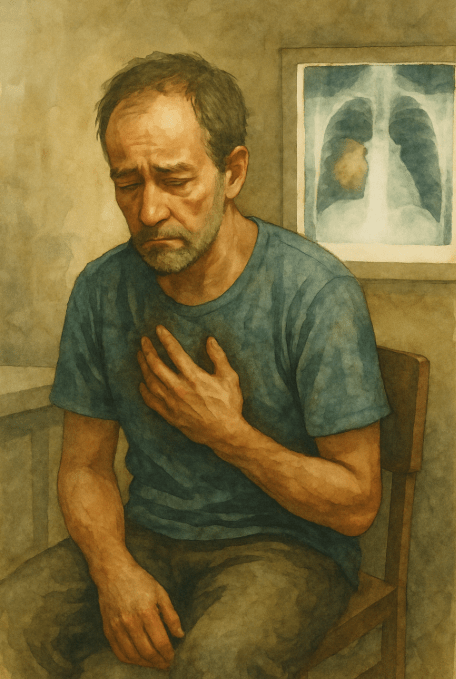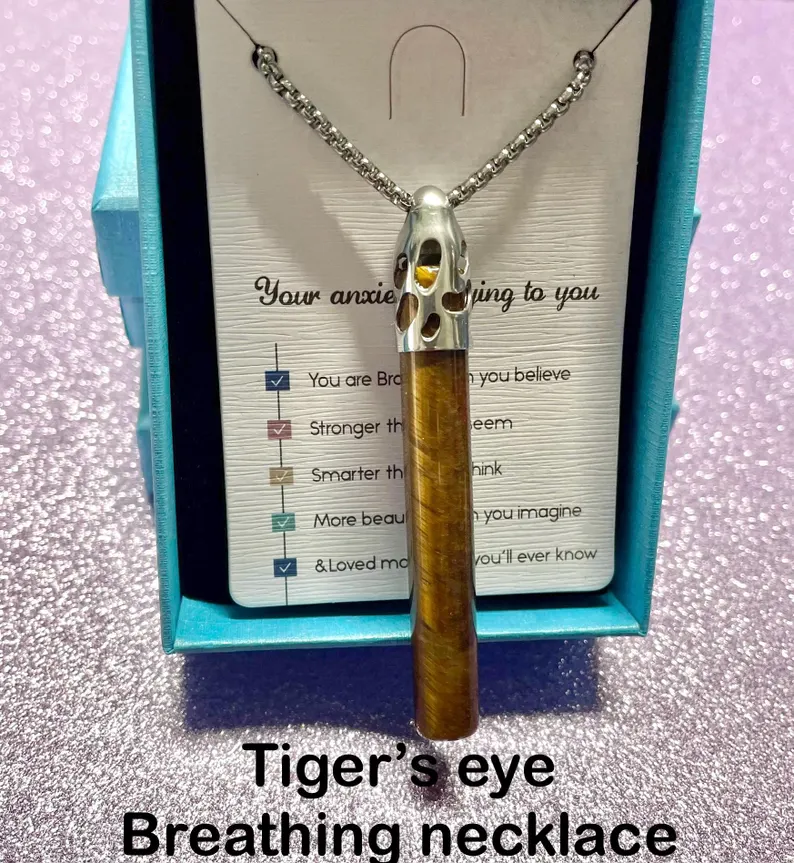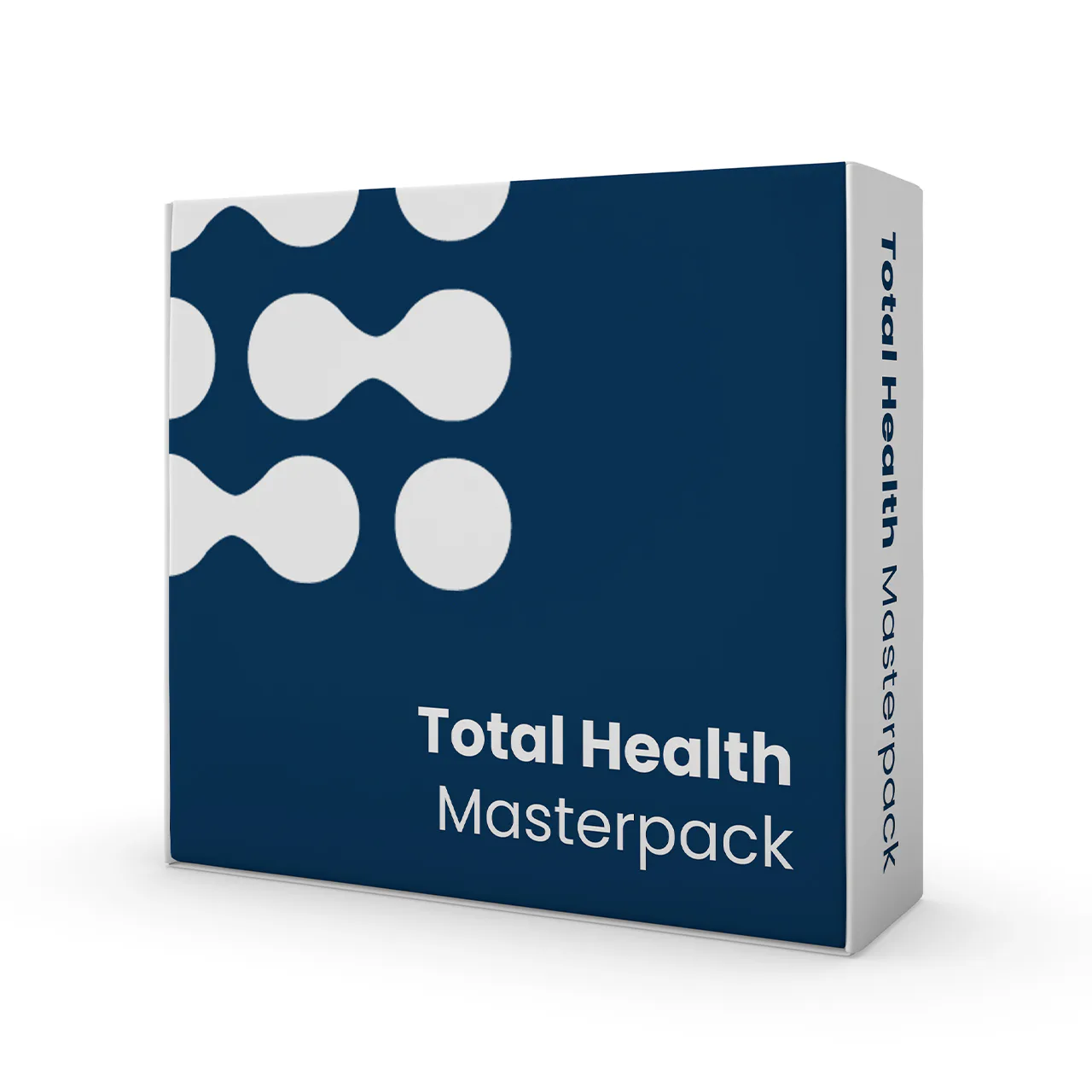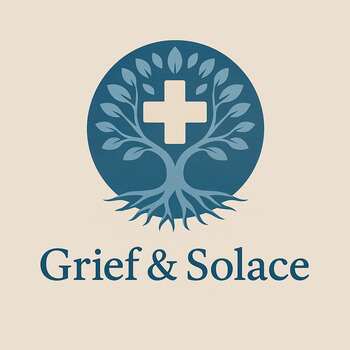Grieving Lung Cancer: When Every Breath Becomes a Goodbye
Grief with lung cancer is sharp and brutal, watching each breath become harder, knowing that every moment is borrowed from the inevitable.

This post blends real grief with grounded knowledge. It isn’t clinical. It isn’t distant. It’s meant to sit beside you—not above you. The story you’ll read is meant to reflect what so many feel when living through or witnessing this condition: confusion, exhaustion, and quiet forms of courage.
If what you read feels familiar, please speak with your doctor. Your pain deserves more than silence.
I Heard His Goodbye Long Before He Spoke It
He hardly coughed, didn’t wheeze, and never appeared sick. That made it all too easy to overlook his symptoms.
He attributed it to allergies, to dust, to the years spent working in poorly ventilated auto shops. He claimed the shortness of breath was merely age catching up with him and insisted he didn’t want to trouble the doctor.
Yet I noticed it. The subtle changes in his breathing, the way he paused after climbing stairs, the shallower, more clipped quality of his laughter.
Then, one day, the cough emerged…persistent but not loud. Fatigue followed, the kind that wrapped around his bones and wouldn’t let go.
🧠 Symptoms:
early and general:
– Persistent cough or a new cough that won’t go away
– Shortness of breath
– Chest pain
– Wheezing
– Hoarseness
– Coughing up blood
advanced or spread:
– Bone pain
– Headache
– Unexplained weight loss
– Loss of appetite
– Swelling in the face or neck
The scan revealed a mass. Initially, the doctors didn’t utter the word; they let the silence speak for itself. Then came “likely malignant,” followed by “biopsy,” and finally “non-small cell carcinoma.”
Lung cancer…he’d never smoked a day in his life.
They explained it could happen, pointing to environmental factors, genetics, or simply bad luck. Yet none of it registered when the room began to spin, drowning out the rest of their sentence: Stage III.
That moment thrust us into an entirely new vocabulary: targeted therapy, PET scans, metastasis, immunotherapy if the markers were promising, chemotherapy if they weren’t.
He refused to dwell on survival rates. Instead, he asked if he’d still be able to drive, if he could walk the dog, if he’d finish building the deck out back.
Complications:
– Shortness of breath (from airway blockage or fluid buildup)
– Bleeding (from tumors invading blood vessels)
– Chronic pain (if cancer spreads to bone or nerves)
– Pleural effusion (fluid buildup around the lungs)
– Metastasis to brain, liver, bones, or other organs
Causes:
– Genetic mutations in lung cells causing uncontrolled growth
– Most commonly caused by smoking (active and secondhand)
– Other causes include radon exposure, workplace toxins (asbestos, arsenic), and genetic factors
types:
– **Non-small cell lung cancer (NSCLC)**: Most common; includes adenocarcinoma, squamous cell carcinoma, and large cell carcinoma
– **Small cell lung cancer (SCLC)**: Less common, but more aggressive; nearly always linked to smoking
But I understood. I could read the nurse’s averted gaze, notice how rapidly the referrals piled up, and feel the way he gripped my hand tighter during our second appointment.
He began treatment, tried to eat, and tried to remain strong. But cancer strips away not just your health; it robs you of your rhythm, your mornings, your appetite, your breath, even when you’re silent.
One night, I heard him crying softly in the bathroom, the fan running. He wasn’t afraid of dying; he loathed the smallness it imposed on him, the helplessness.
That became the first goodbye…not spoken, but evident in the way he looked at me, how he held my face a moment too long, and the crack in his voice when he said he was proud of me.
Prevention:
– Don’t smoke; quit if you do
– Avoid secondhand smoke
– Test your home for radon
– Use workplace protective equipment
– Eat a diet rich in fruits and vegetables
– Exercise regularly
He fought fiercely, took every pill, attended every appointment, and even shared laughs with the nurses. But the cancer had no regard for his goodness, kindness, or strength.
When the end approached, he asked me not to remember the last month, not the oxygen, not the quiet.
Risk Factors:
– Smoking (current or former)
– Secondhand smoke exposure
– Radiation therapy to the chest
– Exposure to radon gas
– Occupational exposure to carcinogens (asbestos, chromium, nickel)
– Family history of lung cancer
– Older age
Just remember the sound of my voice before it became weary.
📘 Diagnosis & Treatment
diagnosis:
– Imaging (X-ray, CT, PET scans)
– Sputum cytology (examining mucus for cancer cells)
– Biopsy (via bronchoscopy, needle, or surgery)
– Genetic testing to guide targeted therapy
– Staging tests to determine cancer spread (stages I–IV or limited vs. extensive for small cell)
treatment:
surgery:
– Wedge resection, lobectomy, or pneumonectomy (depending on size/location)
– May include lymph node removal
radiation_therapy:
– External beam or stereotactic body radiation (SBRT)
– Used alone or alongside surgery/chemo
chemotherapy:
– Administered before or after surgery, or for advanced stages
– Often used with radiation for non-surgical candidates
targeted therapy:
– For cancers with specific gene mutations (e.g., EGFR, ALK)
– Blocks cancer growth at molecular level
immuno therapy:
– Stimulates immune system to attack cancer cells
– Used for advanced or recurrent lung cancer
palliative care:
– Focuses on symptom relief and quality of life
– Can be given alongside curative treatments
screening:
– Low-dose CT screening recommended for adults 50+ with a heavy smoking history (current or quit within last 15 years)
I know this is heavy, and I understand that the road ahead may feel like a tangle of loss and unanswered questions. But please hear this: you are not broken because you are hurting; you are not weak because you are afraid. You are living through something real, and survival itself is a kind of grace. You are allowed to struggle, you are allowed to hope, and you are allowed to not have all the answers today. Whatever comes next, you do not face it empty-handed; you carry every moment of love that shaped you, and that will always be enough to keep going.
🎀 Gifts to help With Lung Cancer
🏥 Everyday Comforts for Everyday Battles
Managing Lung Cancer often means needing a little extra help.
Sometimes it’s about restoring dignity, ease, or simply getting through the day with less pain.
These carefully chosen tools aren’t just items; they’re small bridges back to living.
This section is about finding practical support, never shame.
Pursed-Lip Breathing Trainer – Gentle Resistance for the Lungs Still Fighting
Lung cancer doesn’t just take breath—it takes strength. This simple breathing trainer helps improve oxygen exchange and reduce shortness of breath through gentle resistance training. Small enough to use at home, in bed, or after treatment. It’s not a cure. But it’s a way to remind the lungs how to try again, softly.
🌿 Paths to Healing Beyond the Map
Sometimes traditional medicine isn’t enough.
If you’re exploring gentle, alternative options to help with Lung Cancer,
you might find comfort in plant-based compounds like **CBD or CBG**.
*This section is not medical advice, just a door left open.*
USA Medical Total Support Pack – System-Wide Care for a Body in Recovery Mode
Lung cancer drains more than the lungs—it wrecks sleep, immunity, and emotional reserve. This Total Pack offers CBD, immune support, sleep aid, and calm-inducing herbs to gently assist the body through recovery or palliative care. It won’t treat the cancer. But it may help ease the long road of managing it.
Need a Different Path Forward?
Every journey through grief looks different. Choose the next step that speaks to where you are now:
When You're Ready to Start Healing
Healing doesn’t mean forgetting.
It means finding small ways to carry your grief with strength and grace.
These are the stories, tools, and gentle steps to begin walking forward…at your own pace.
When You're Still in the Thick of It
Sometimes healing feels like a lie.
If you’re not ready to move on…if the pain still roars louder than the world wants to hear…this is the place where you’re allowed to feel it.
No sugarcoating. No pretending. Just truth.
When You're Holding on to Who’s Still Here
Grief reminds us to love louder.
If someone you love is still with you, this is your place to celebrate them, honor them, and create new memories while there’s still time.
Joy and sorrow can live side by side.






